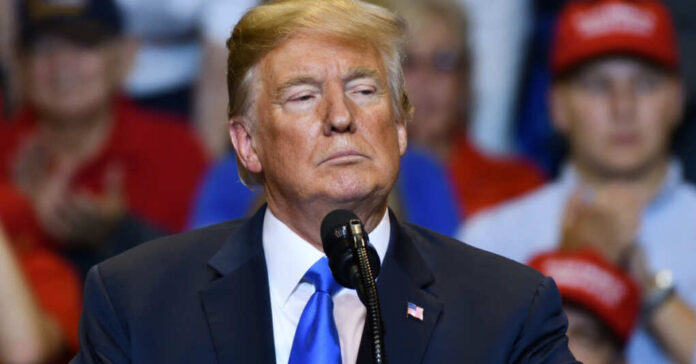
In a fiery rally in South Carolina, former President Donald Trump reiterated his strong stance on NATO funding, warning that under his presidency, nations failing to meet their financial commitments would not receive U.S. assistance in the event of a Russian attack. Trump’s bold assertion highlights the ongoing debate surrounding NATO members’ contributions to the alliance’s defense budget.
During the rally, Trump boasted about his role in revitalizing NATO, emphasizing that member nations must fulfill their agreed-upon financial obligations. He recounted a scenario where a president from a non-compliant country asked whether the U.S. would protect them in the event of a Russian attack. Trump replied with unwavering resolve: “No, I would not protect you. I would encourage them to do whatever the hell they want. You’ve got to pay. You’ve got to pay your bills.”
Trump attributed the success of his approach to NATO, claiming that “hundreds of billions of dollars” poured into the organization under his leadership, resulting in its current financial stability. The essence of his policy was rooted in the principle that countries failing to contribute their fair share should not expect unconditional support.
Critics argue that this stance jeopardizes the core tenet of the 31-member NATO alliance, where a move on one member is considered an attack on all. Trump’s insistence on financial accountability reflects his long-standing position, articulated during his 2016 campaign, that the U.S. would reconsider its commitments to nations not meeting the two percent GDP spending target outlined in NATO guidelines.
A 2023 NATO report revealed that only seven of the 31 member nations met the 2 percent GDP spending target on defense in 2022. Despite being an improvement from 2014, when only three nations met the minimum requirement, concerns persist about the equitable distribution of financial burdens within the alliance.
As of April 2023, the United States contributed 16.19 percent of NATO’s budget, standing as the top joint contributor alongside Germany. The United Kingdom and France followed with contributions of over 11 percent and 10 percent, respectively. However, 14 member states spent less than 1 percent each, underscoring disparities in defense spending among NATO nations.
President Trump’s remarks drew sharp criticism from White House spokesperson Andrew Bates, who called them “appalling and unhinged.” Bates emphasized President Biden’s commitment to strengthening alliances and ensuring national security, dismissing Trump’s approach as endangering global stability and the U.S. economy.
Polish Deputy Foreign Minister Paweł Zalewski acknowledged Trump’s comments as those of a serious presidential candidate, expressing concern over the potential shift in U.S. presence within NATO. Zalewski found Trump’s call on Russia to attack incomprehensible, calling attention to the delicate balance between urging increased defense spending and avoiding provocative rhetoric.
NATO Secretary-General Jens Stoltenberg, when questioned about the impact of a potential second term for Trump, maintained neutrality, stating that NATO does not have an opinion on elected leaders. However, he expressed confidence in the U.S. remaining a steadfast NATO member, emphasizing the shared interest in maintaining a strong alliance for national security.
Stoltenberg acknowledged that the primary criticism revolves around insufficient NATO allies spending rather than the alliance itself. He highlighted positive developments, noting that European allies and Canada had started to increase defense spending, aligning with NATO’s guidelines.
In a broader call for fiscal responsibility, President Trump urged the U.S. Congress to cease providing foreign aid as grants, proposing that aid be offered as loans with favorable terms. His social media platform, Truth Social, featured a post outlining the idea of loans with conditions, ensuring repayment if the aided country turned against the U.S. or experienced economic prosperity in the future.
Trump’s outspoken stance on NATO funding has reignited debates on financial accountability within the alliance. While critics decry his approach as reckless and damaging, supporters applaud his commitment to ensuring that all NATO members contribute proportionally to the collective defense. The ongoing discourse highlights the nuanced challenges of balancing financial obligations and maintaining a united front against potential adversaries.














